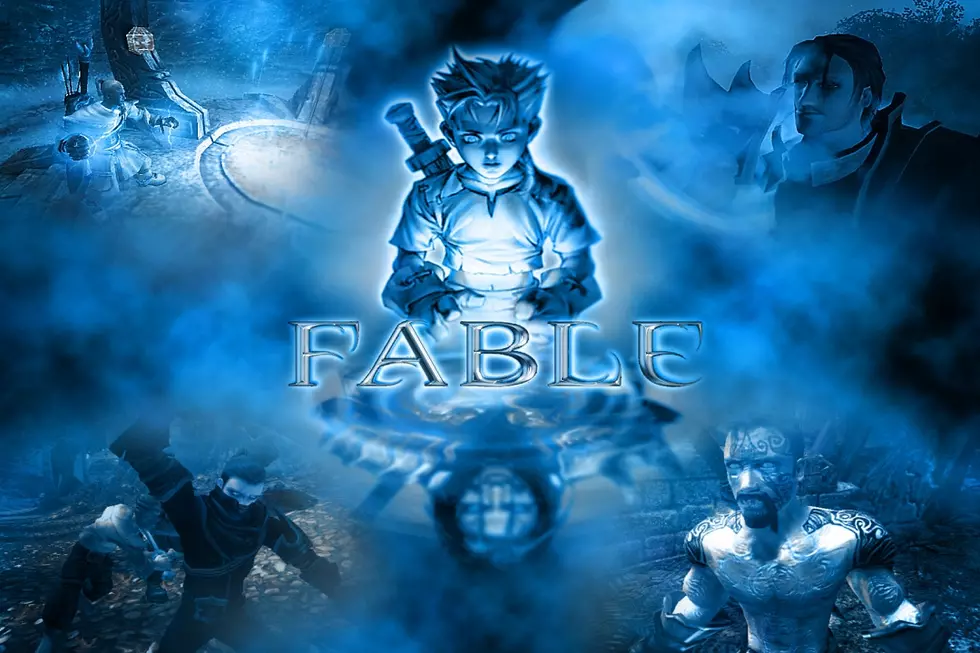
Lionhead’s Tasteless Tweets Are Just the Latest Examples of Gaming’s ‘Boys Only’ Culture
It’s a story anyone who follows the gaming industry has become familiar with: a corporate Twitter account posted something that may have shown poor judgment. Responses were angry, Tweets were deleted, and an apology was issued. Microsoft’s Lionhead Studios, or the social media manager behind the account, certainly isn’t the first to commit this kind of gaffe, and I have no doubt that it was meant to be a harmless joke. Sadly, when you’re constantly bombarded with imagery that conveys the message that you’re not wanted, it’s not hard to read more into it.
“Happy #NationalCleavageDay from all of us at Lionhead Studios!” This short message was accompanied by a busty barmaid with two foaming tankards of beer in front of her chest. To be fair, this is an asset from a years-old Fable game, and the image of a top-heavy bartender isn't exactly out of place in Lionhead’s flagship series. The negative response was immediate, and Lionhead’s response was to double down on National Cleavage Day, this time with an image of a male character whose butt was exposed. “We don’t descrimate [sic],” the attached tweet read. Within hours both tweets were deleted and an apology was issued, again via Twitter: “We apologise for the imagery we shared earlier. Diversity & inclusion are values we uphold here. We'll reinforce these values w/ our team.”
Of course, for every person who called out Lionhead’s tasteless choice in hashtags, there were plenty wondering what the big deal is. So what, a virtual lady with big, uh, jugs. Who cares? Why the outrage? Clearly, whoever posted that meant no harm. And I agree with that last point—I do think it was meant to be a harmless (if somewhat lame) joke, not the latest industry controversy. The thoughtlessness of those actions along with the image itself just repeats a message women in gaming are used to hearing: “You don’t belong here.”
Lionhead’s gaffe is tame compared to some other remarks about gender we’ve seen in recent years. Just days ago, Final Fantasy XV director Hajime Tabata told GameSpot the JRPG's all-male party "feels almost more approachable for players." And who could forget Ubisoft’s ill-advised response to the lack of playable female characters in Assassin’s Creed Unity’s co-op? Or, for that matter, any other time the same publisher decided playable women weren’t worth the effort? How about anytime a game with a robust character creator decides that 50% of the population doesn’t need to be an option? Then there are the gaming ads that either omit women or ridiculously oversexualize them, like the Kate Upton-fronted banners for mobile strategy title Game of War that you can’t escape lately.
It’s easy to roll your eyes and scroll past things like Lionhead’s tweets, or over-the-top sexy ads, or the latest boneheaded comment that enforces toxic gender stereotypes when you see it almost every day. And a lot of the time, I do too. But as gaming’s female audience has grown, the culture has become more and more unwelcoming for anyone who doesn’t fit the hetero dude norm. As game developer Brianna Wu, whose attention to yesterday’s Lionhead kerfuffle may have helped prompt the apology, put it, “For 30 years, gamers have been told games are men's space… What @LionheadStudios doesn't understand is when game studios set this kind of culture, it has terrible repercussions for women.” Wu, herself a constant target of harassment and cries of “If you don’t like it, make your own game!” (always delightfully ironic given that she founded a gaming studio to do just that), pointed out that it’s perfectly fine to have sexy women characters in games (or any other media, for that matter), but they shouldn’t only be used as “an object to date/f---.”
Sure, we’re making progress; plenty of games give players the choice of being a kick-ass man or woman, and we’ve seen quite a few interesting-but-flawed female characters eschewing stereotypes in the last few years. But there’s no escaping that the industry, as a whole, treats “straight male” as its default character and audience, and anything else is a deviation that may or may not be worth the effort. And when you’re a woman who’s been gaming for nearly three decades and managed to turn a devoted hobby into a career, it’s not just disheartening to see casual sexism thrown around—it’s incredibly defeating. So if you’re wondering what the big deal is over one harmless image, just remember: it’s not one image. It’s everywhere, every day, constantly, and it’s goddamn exhausting.
More From Arcade Sushi









